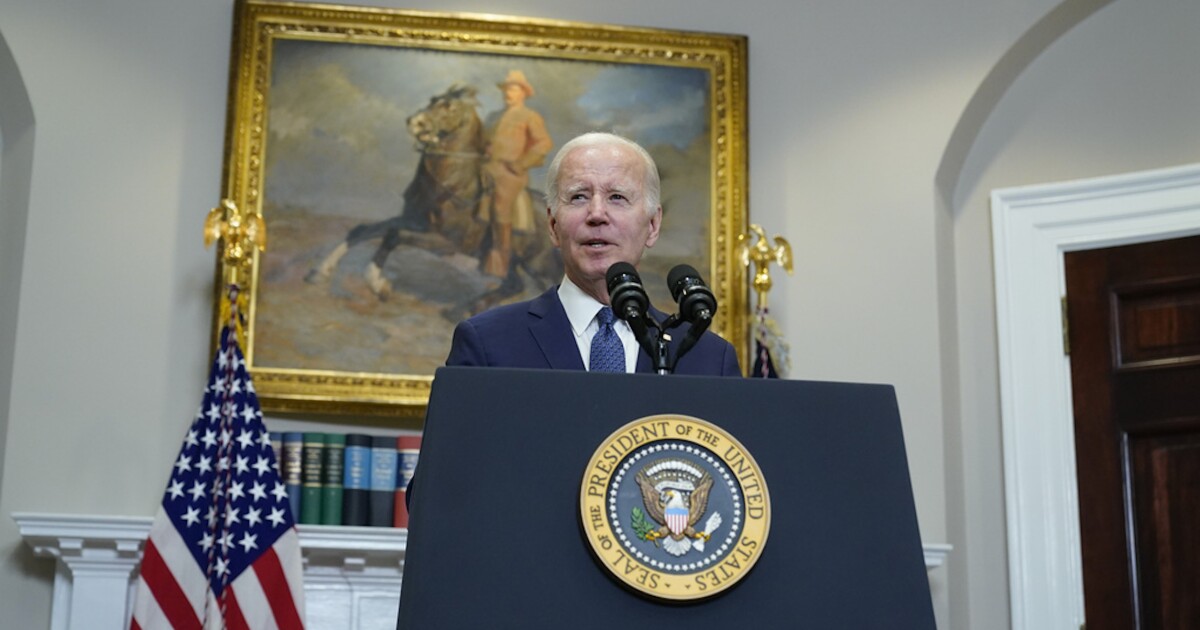

President Joe Biden defended his deal in principle with House Speaker Kevin McCarthy (R-CA) that enacts spending cuts to avert a debt default as “good news” for the country, despite facing criticism from both sides of the aisle.
Negotiators reached a tentative agreement on Saturday evening that would raise the debt ceiling for two years, roll back non-defense discretionary spending to Fiscal Year 2022 levels, and cap top-line federal spending to one-percent annual growth over the next six years. The deal was swiftly criticized by progressives and hard-line conservatives, with the former claiming the cuts were too severe while the latter argues the cuts were insufficient.
BIDEN AND MCCARTHY’S TENTATIVE DEAL RAISES DEBT CEILING UNTIL 2025
“We’ve got good news,” Biden said from the White House on Sunday evening. “I spoke with Speaker McCarthy and we’ve reached a bipartisan agreement that we’re ready to move to the full Congress. And I think it’s a really important step forward. It takes the threat of catastrophic default off the table, protects our hard earned and historic economic recovery, and the agreement also represents a compromise that means no one got everything they want, but that’s the responsibility of governing.”
“This is a deal that’s good news for, I believe you’ll see, the American people,” he continued. “The agreement prevents the worst possible crisis, a default for the first time in the nation’s history and economic recession, retirement accounts devastated, millions of jobs lost, but also protects key priorities and accomplishments and values that Congressional Democrats and I have fought long and hard for.”
Asked by reporters after his remarks how he’d respond to Democrats who fear he gave away too much in negotiations with McCarthy, the president replied, “They’ll find I didn’t. He went on to lambaste the claim that the deal would cause hunger for poorer Americans as “a ridiculous assertion.”
The debt ceiling, or the highest amount the federal government can borrow, will either need to be raised or abolished sometime next month to avert a default. Economists have long warned that such a default would wreak havoc on the economy. Treasury Secretary Janet Yellen said the United States will be unable to pay its bills by June 5.
CLICK HERE FOR MORE FROM THE WASHINGTON EXAMINER
The exact details of the deal began on Sunday evening after Biden’s Roosevelt Room remarks. A GOP fact sheet on the bill, confirmed to the Washington Examiner by Reps. Dusty Johnson (R-SD) and Stephanie Bice (R-OK), revealed that the deal would raise the debt ceiling until January of 2025, claw back nearly $29 billion in unspent COVID relief funds, as well as add work requirements to Temporary Assistance for Needy Families program and the Supplemental Nutrition Assistance Program up to age 54.
It would also claw back the $1.9 billion appropriated to the Internal Revenue Service for the 87,000 new agents, implement a temporary 99% continuing resolution cap until all 12 appropriations bills are passed, and would restart student loan payments in 60-days.





